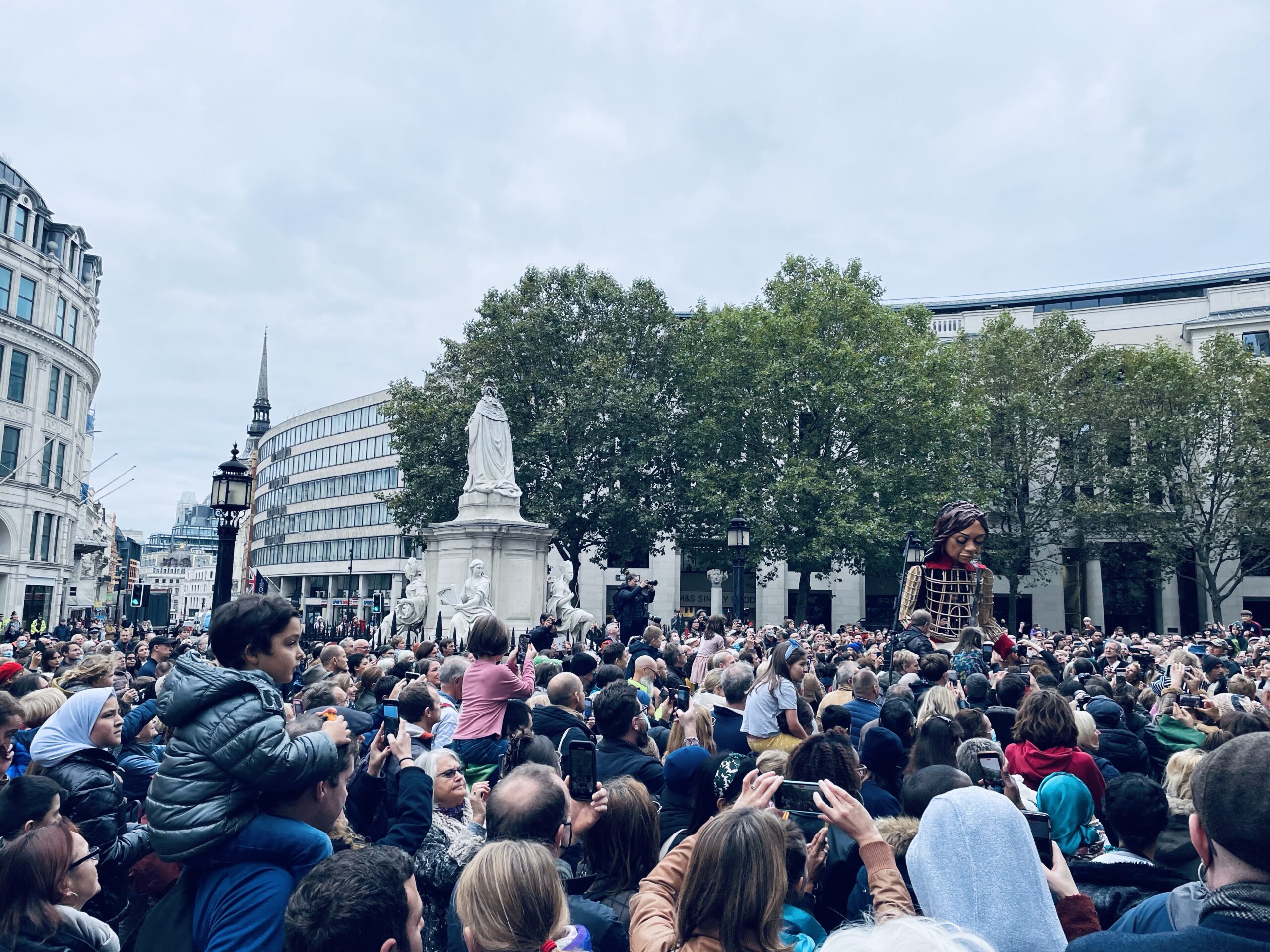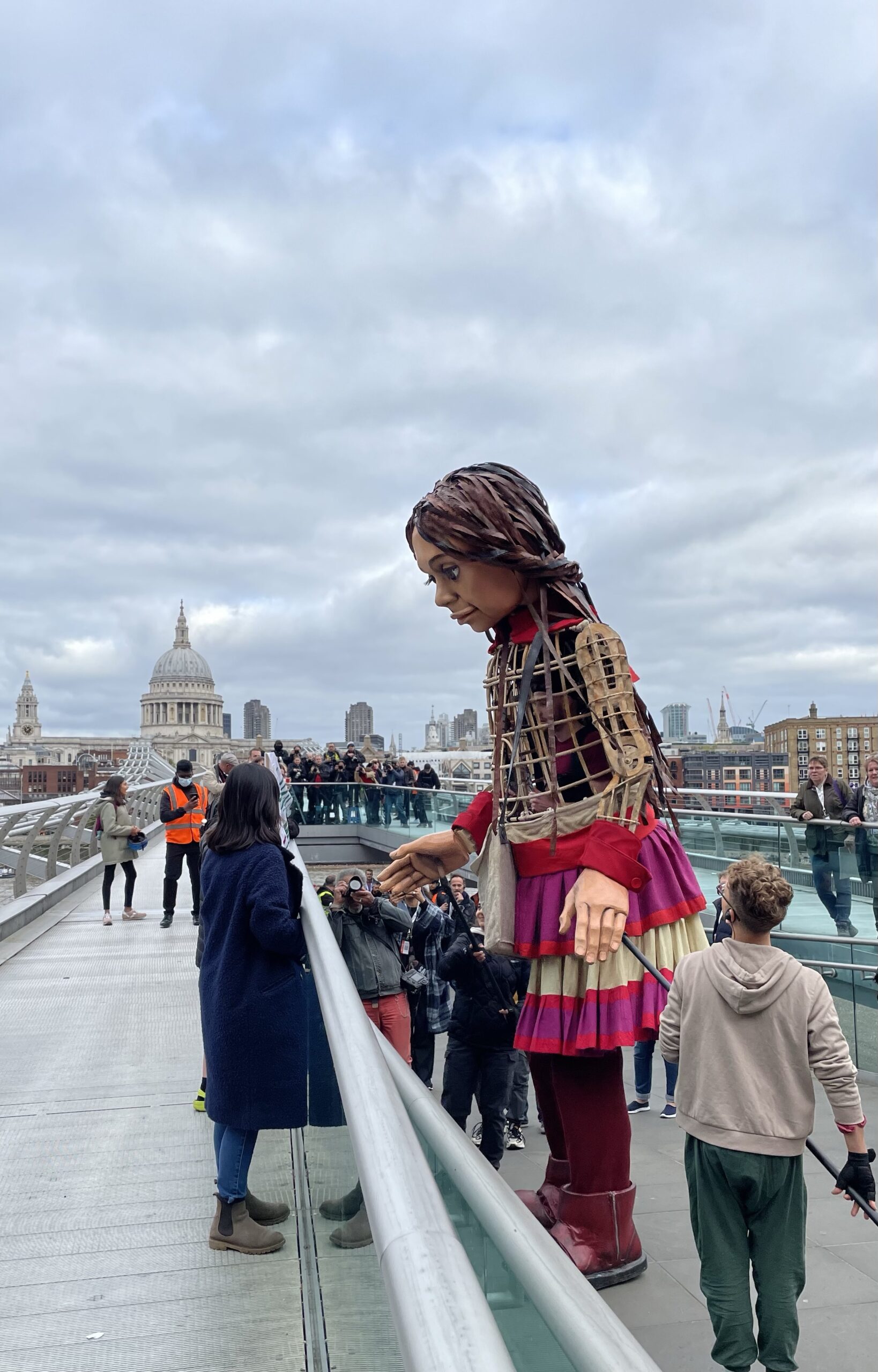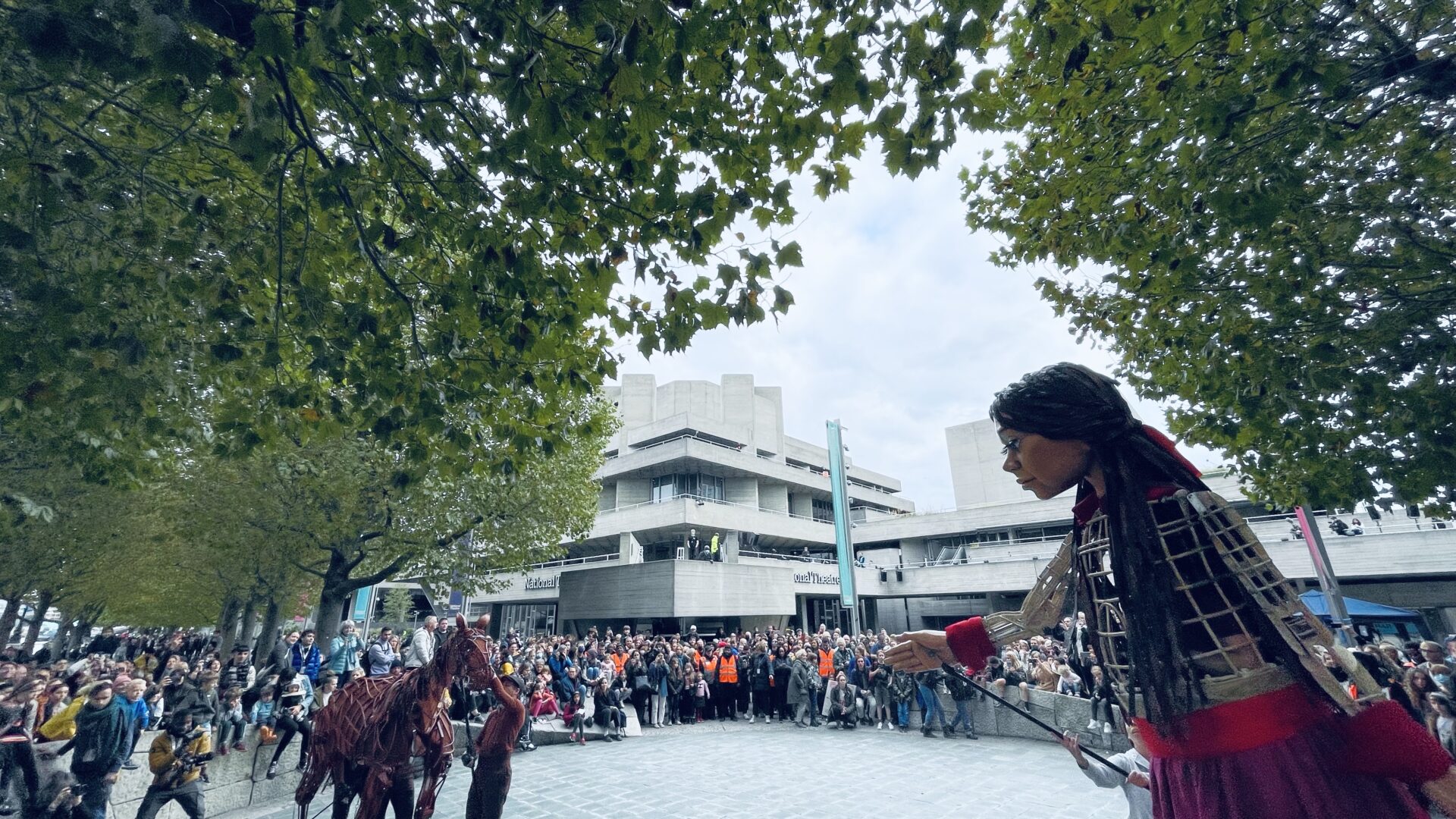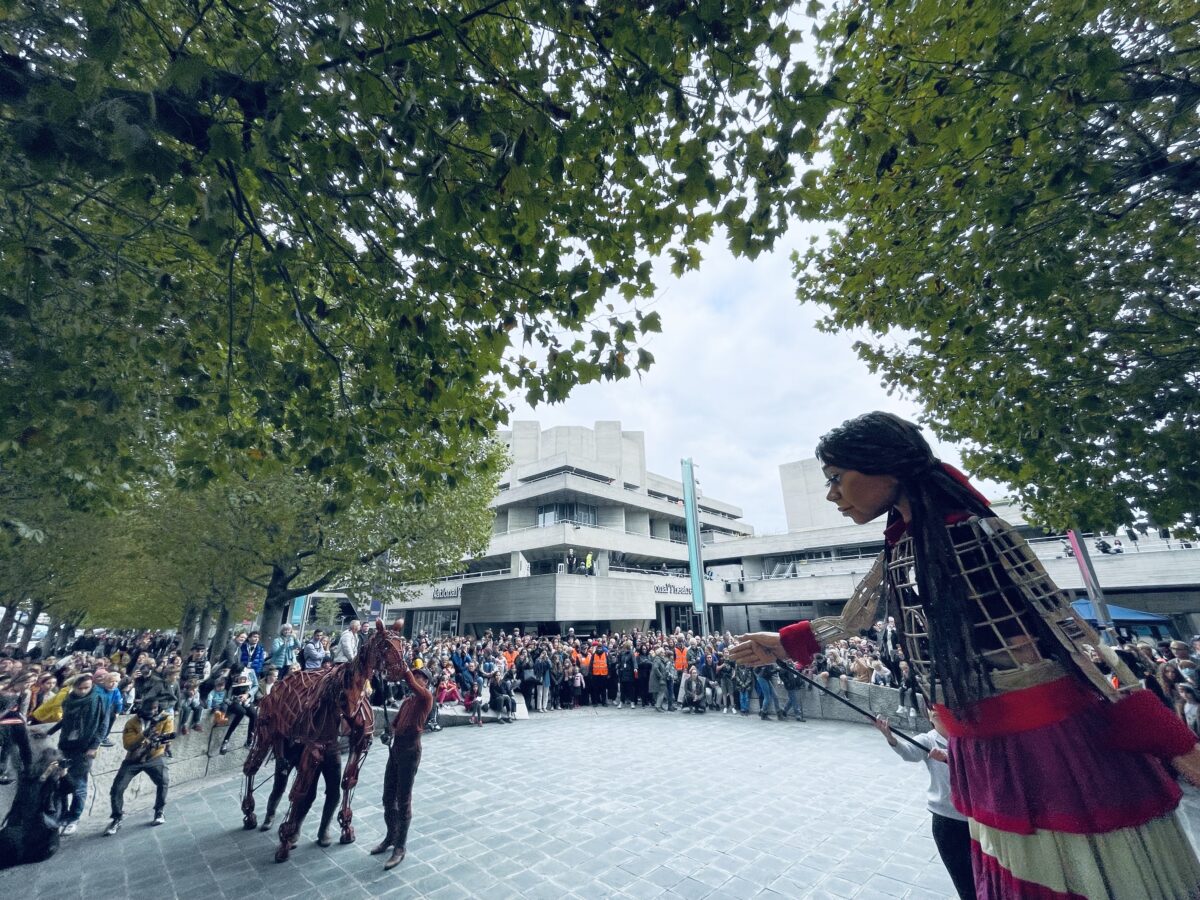Hope
Little Amal arrived in London on the morning of 23 October, just outside St Paul’s Cathedral. I was there—moved and inspired—surrounded by people of all ages welcoming a young refugee who had travelled an extraordinary journey from Gaziantep, near the Turkey–Syria border. Amal had already passed through seven European countries before arriving in the UK.
Little Amal is the central figure of a street puppet performance. She is a nine-year-old Syrian girl, searching for her mother, who left to find food during the war in Syria and never returned. In her search, Amal represents all displaced children—those who have fled violence, war, and disaster, and those separated from their families.

Symbolically, Amal’s journey finds its final destination in the UK. She is expected to end her walk next month in Manchester. Whether the UK today is a truly welcoming place for refugees, asylum-seekers, and immigrants remains uncertain. I can only hope that it might become one. According to UNICEF, while children make up less than one-third of the global population, they accounted for nearly half of all refugees in 2020. One in three children living outside their country of birth is now a refugee. By contrast, that ratio for adults is less than one in twenty.
Children and families are the face of a humanitarian crisis that stretches across borders—from conflict zones in the Middle East, to countries affected by climate change in Africa and Latin America, to communities shattered by authoritarian regimes in Afghanistan or near borders like Mexico. Amal’s presence in London reminds us of this crisis. But she also reveals the power of community arts to awaken public conscience.
I am aware of the fear she provoked in some places. In my home country, Greece, she was met with hostility. Far-right protesters threw objects at her. Local councillors voted to ban her from visiting. Her route through Athens was obstructed. These acts repeated the harm that so many children and families have already endured. While we may not be able to undo the trauma of displacement, we can choose not to deepen it. We can refuse to retraumatise children who seek only safety and a place to belong.
Yesterday, standing at St Paul’s Cathedral, my body celebrated Amal’s warm welcome. But when she walked past us, my thoughts travelled to Greece. I felt sorrow for her, and for all refugees and immigrants—including myself—who have faced rejection and exclusion. I recalled the decision last spring by my birthplace, Karpenissi, to decline hosting 40 refugee children and families from Afghanistan, in response to a national call for help.

Yet sadness gave way to hope. Around me were songs and open doors, the voices of children, and the presence of families united in kindness. Amal’s name means hope—and she lived up to it. At a time of great global movement and uncertainty, she reminded me that art can still unite us. It can forge shared humanity across borders, cultures, and ideologies.
People have the right to move, to seek shelter, to build new lives in safety. We are the products of our histories. Art is here to remind us—to connect us—and to help us tell new stories of belonging. Not all will recognise this shared humanity. But that cannot stop us from caring. Refugees and immigrants have always had much to give. Their stories are part of the fabric of who we are.

